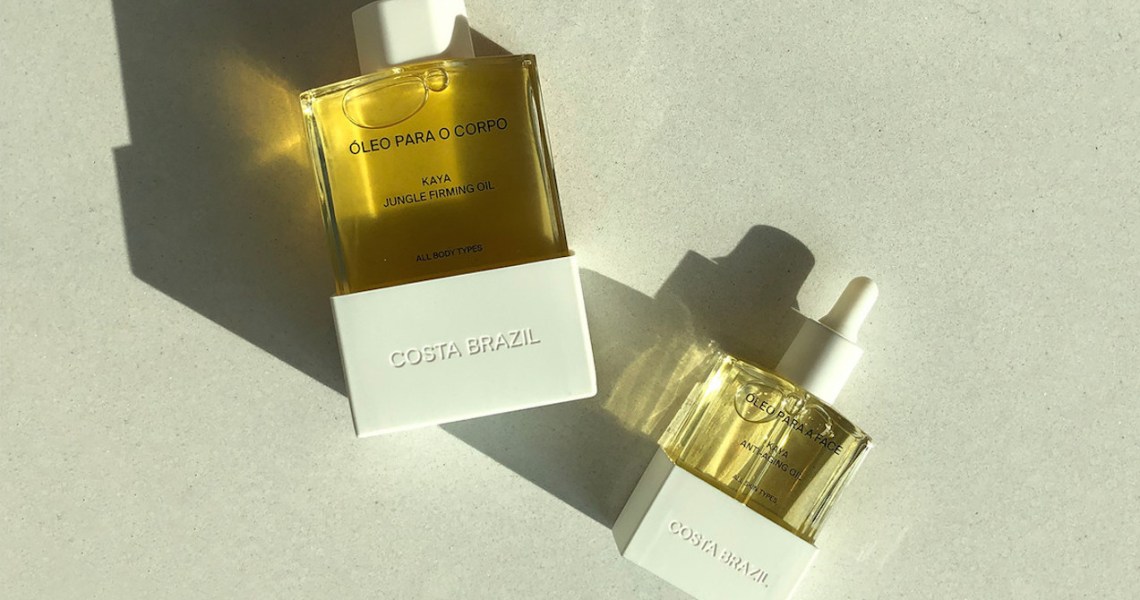Clean technology company Amyris Inc. is beefing up its consumer products division as it seeks to replicate the success of its sustainable synthetic ingredient business that underpins Biossance.
On March 1, Amyris, which owns Biossance and children’s skin-care brand Pipette, announced it acquired clean luxury beauty brand Costa Brazil for an undisclosed sum and that founder Francisco Costa will become the chief creative officer of the parent company. And that’s just an indicator of the opportunities Amyris’ consumer business is expecting. In June, Amyris will relaunch the Terasana skin-care brand (which it acquired in January) as a skin treatment brand. Two months later, it will debut a new hair-care brand co-created with Jonathan Van Ness and a clean makeup brand from Rose Inc., the lifestyle media company founded by supermodel Rosie Huntington-Whiteley. Amyris acquired 60% of Rose, Inc. in Oct. 2020. Amyris also has two other business verticals, focused on health and wellness, and flavors and fragrances.
Amyris was founded in 2003 as a biotech and biofuel company but has gone through a long transformation. Initially, Amyris set out to commercialize fermentation technology but experienced manufacturing issues. Wall Street investors reportedly also grew impatient. John Melo, Amyris Inc. CEO, joined the company in 2006, and by 2012, he was guiding its evolution toward consumer products and other more commercially viable enterprises. The squalane ingredient behind Biossance has become the breakout star of those efforts.
“There’s room for a L’Oréal of clean beauty, and I want Amyris to be the L’Oreal of clean,” said Melo.
When Amyris developed its version of squalane — a synthetic form of shark-derived squalene — the company believed it had potential as a best-selling ingredient that, as a biotech company, it could sell to beauty brands. But in order to make squalane desirable, it had to also create squalane’s popularity. In 2016, it launched Biossance based on the squalane ingredient story, which mimics the skin’s natural oils with emollient and anti-aging properties. Cut to 2021: Biossance is on track to earn up to $160 million in sales this year. Squalane makes up 20% of Amyris’ total revenue, Melo said. Amyris now sells squalane to companies like Shiseido, L’Oréal Group and AmorePacific. The ingredient is found in brands like JLO Beauty, The Ordinary and Peter Thomas Roth.
“We want to talk to consumers directly and convince them of how good this ingredient is so that they will buy more products with it. We would then sell more of the ingredients to other brands,” said Melo. “That’s actually how we got into creating brands for our company.”
The aim of its other portfolio brands is to recreate the growth trajectory of Biossance. Melo said his acquisition philosophy is to buy smaller brands for less and grow them, rather than buying established brands for a premium price. The expectation for upcoming brands, including Costa Brazil, is that investments made today will offer a 10x return or higher in four years or less, he said.
With Costa Brazil, that potential growth lies in turning its hero ingredient, breu, a resin found in the Amazon rainforest, into the next big ingredient, while also introducing squalane to the brand’s formulas. As Costa Brazil scales in distribution, Amyris plans to manufacturer a lab-derived version of breu, rather than harvest it from the rainforest. Melo said that a portion of Costa Brazil sales would then be redirected back to the Amazonian communities, so as not to eliminate their income in the name of sustainability. Amyris is conducting clinical studies on the efficacy of breu, but if its skin-care benefits around moisture and anti-inflammation are true, then it could try to replicate the success of squalane.
“We’re going to be very aggressive with the growth of Costa Brazil,” said Costa. “Amyris had great success with Biossance, which was totally unknown in the market. Costa Brazil is already a known brand that is loved, so the exercise [of growing it] will be a lot simpler and more well-defined.”
Craig Irwin, Roth Capital Partners managing director and senior research analyst covering Amyris, said that Costa’s appointment as creative director was an “exciting opportunity” for the company. Irwin pointed out that Han Kieftenbeld, Amyris Inc. CFO since Feb. 2020, is also an asset in the company’s growth because he understands the mechanics of Wall Street and has been able to bring an element of creativity to the CFO position.
“John Melo is a visionary, and you have a CFO that gets [that vision]. Costa’s history is interesting and is going to be another exciting part of how [the management team] fits together,” said Irwin. “Amyris is a company to keep an eye on.”
Melo said Amyris is in discussions to acquire an existing beauty and lifestyle brand and to co-create a new brand with the owner, but he declined to provide further details as the deal has not yet closed. After that, Amyris isn’t planning to focus on other acquisitions, as it will have enough brands to cover 80-90% of the beauty market, Melo said.
“We’re in a very unique beauty supercycle for the consumer. Why waste that opportunity?” said Melo. “This is the moment to acquire, engage with and build a community, and to get deep in helping that consumer figure out how to navigate all that’s coming at them in the beauty world.”




